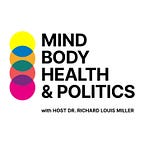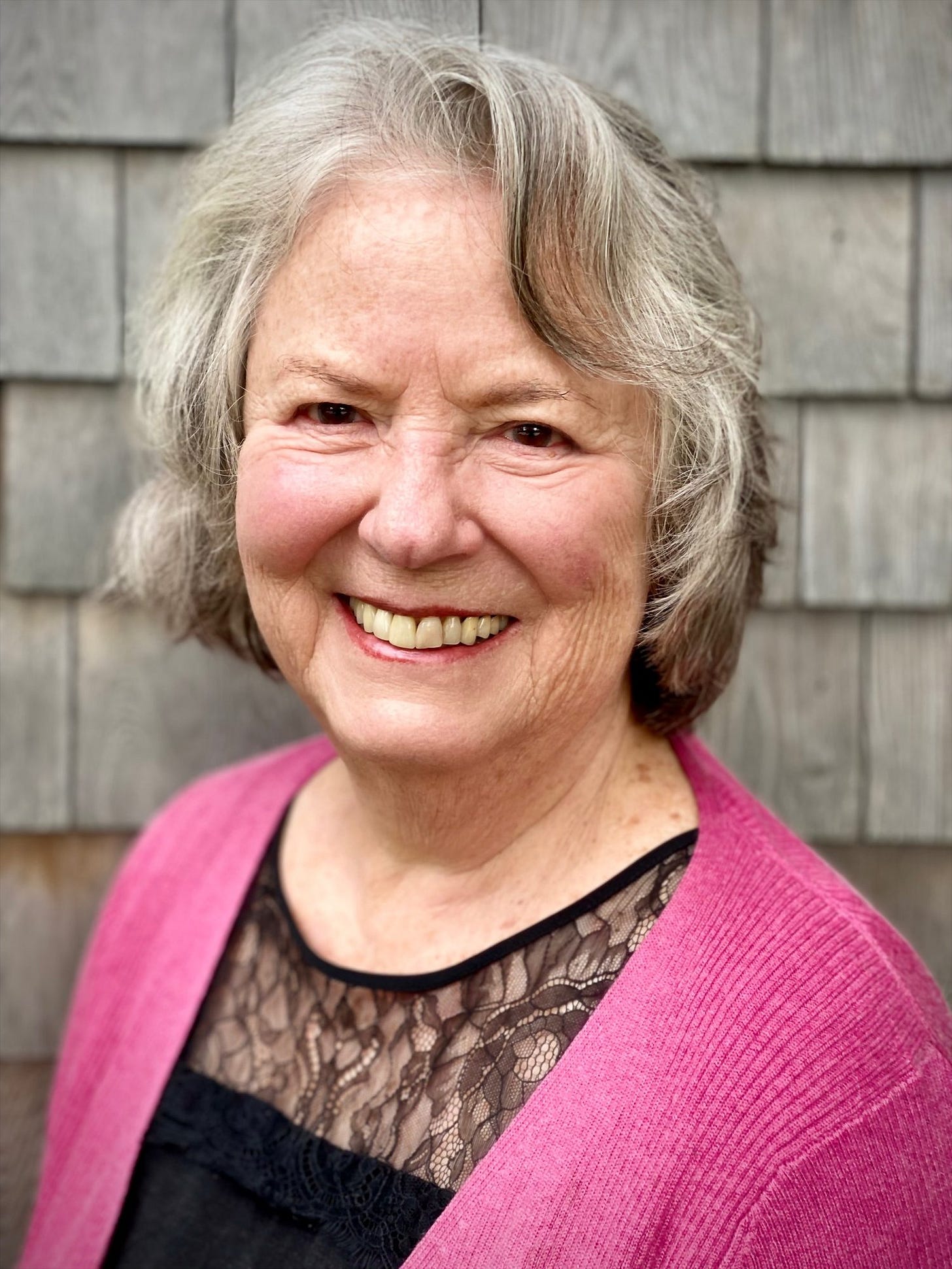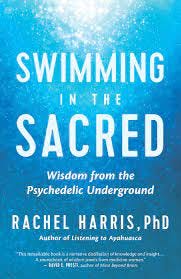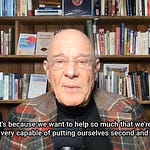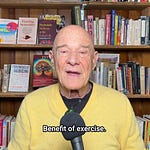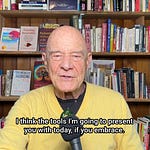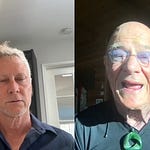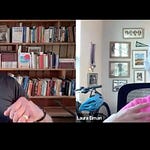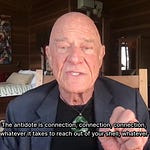Dear listeners,
I’m delighted to share my recent conversation with Rachel Harris, a kindred spirit who has walked a similar path of exploration through the psychedelic realm.
Rachel Harris, PhD, is the author of Swimming in the Sacred: Wisdom from the Psychedelic Underground and Listening to Ayahuasca. A psychologist who has been in private practice for 40 years, she spent 10 years in an academic research department where she published more than 40 scientific studies in peer-reviewed journals and received a National Institutes of Health New Investigator’s Award.
As we discovered prior to recording this episode, Rachel and I were both at the Esalen Institute in the heady days of the 1960s, soaking up radical ideas and having our first encounters with psychedelics. Our early experiences with these substances were incredibly impactful, providing a sense of oneness with nature and shaping the course of our lives and work.
Rachel’s earlier book, Listening to Ayahuasca, opened connections to the underground guides and healers she profiles in her latest book, Swimming in the Sacred. These women have decades of experience journeying with and serving plant medicines. Yet amidst the current psychedelic renaissance, interest is growing faster than the supply of properly trained guides.
As Rachel notes, some are taking abbreviated training programs and setting up shop as psychedelic therapists without having ever walked the paths themselves. Real mastery, she notes, demands extensive personal healing work before one can hold space for others. As the elder guides stress, you can only take a person as far as you yourself have ventured.
She writes:
“The contrast is that someone now who's a licensed therapist, can take a one-year course over the internet, and say, ‘All right, I'm ready to sit with people.’ But they don't have their own experience of healing with the entheogens, which really takes years, and they don't have a mentor. So it's a very different process these days.”
Rachel suggests pointedly asking any potential guide, as the elders do, “Who authorized you to serve these medicines?”
Rather than accept qualifications at face value, we must dig deeper into their experiential preparation. Whether getting your car repaired or choosing a surgeon, we owe it to ourselves and our loved ones to ask tough questions and vet providers carefully. Anyone offering a service should welcome such inquiries rather than responding defensively.
Moving forward, we need structured pathways to train guides rigorously in safe use of psychedelics, not just clinical technique. Psychedelic therapy schools must uphold strict standards before “graduating” guides to work with clients independently. Furthermore, guides have a responsibility to thoroughly vet their patients as well for potential adverse effects.
In the meantime, public education is vital so people understand what to look for in a competent guide. I urge you to read Swimming in the Sacred to appreciate the lineage of women holding this sacred knowledge.
And please reach out to share your own stories - we need more voices speaking out to shift the tide towards responsible, equitable access as psychedelic therapy goes mainstream. The future depends on it.
Golden light,
Dr. Richard L. Miller
Watch:
Main topics:
Background on Rachel's book Swimming in the Sacred
Self-work before guiding others
Problems with the term "guide"
Early psychedelic experiences connecting to nature
Rachel's path to ayahuasca
Different motivations for taking psychedelics
Importance of vetting guides carefully
Adverse effects and safety precautions
Quotes on nature's wisdom and selfless guiding
Links and references:
Swimming in the Sacred: Reclaiming the Mystical Essence of Psychedelic Therapy by Rachel Harris
Listening to Ayahuasca: New Hope for Depression, Addiction, PTSD, and Anxiety by Rachel Harris
The Secret Chief Revealed: Conversations with a Pioneer of the Underground Psychedelic Therapy Movement by Myron Stolaroff
Seeking Psychedelic Testimonials: The Good, the Bad, and the Ugly.
We are currently looking for first-hand accounts of adverse effects of psychedelics—from ‘bad trips,’ to unwanted physiological complications, to abusive practices by guides, therapists, and shamans.
The interviews from this series will go into a forthcoming book on the topic—perhaps the first book its kind.
Please contact me if you would like to be interviewed.
NOTE: The podcast is always freely available thanks to our paid subscribers. Please share this post to show your support for transparency. The following transcript distills the key points from this show into a condensed form. It is meant as a reference - listen to the full episode for an accurate rendition of the conversation.
Transcript
Dr. Richard Miller: So your latest book, Swimming in the Sacred. It consists of a great deal of interviews with very special women, women who have spent their lives as - shall we can we use the word guides? What word can we use that feels comfortable for you in describing what these women do and what they are?
Rachel Harris: Well, you know what, when I started to interview these underground women elders, my criteria was that they'd been practicing for at least 20 years. And I made the assumption that they were psychedelic therapists, and I was totally wrong.
They're not therapists. They don't even do really much of integration, they're really priestesses - they do the ceremony. They do the ritual. And they do the magic, you know, in the middle of the night mostly. And they're not.
They might refer to therapists who are knowledgeable, but they are not interested in doing therapy with people. They're interested in facilitating transformation using the entheogens.
Dr. Richard Miller: And the transformation that they're interested in doing takes place during the ceremony, but they do not get involved in the work thereafter, which is now we are calling integration work. Is that correct?
Rachel Harris: Right. They would all say, Oh, yes, we do integration. But what they really mean is maybe they meet with the person once or twice, maybe over the phone, they talk to them. But they're not really in a therapeutic process with the client. Their focus is on the ceremony itself.
And so I sort of see them as priestesses not ministers, not in a religious sort of way, but sacred priestesses.
Dr. Richard Miller: And how did it come about that you decided to interview these people? I asked that question, because I did a book, that sort of a cousin to your book called Psychedelic Wisdom, where I interviewed prominent therapists, and doctors and professional people who have personally been self experimenting with psychedelics for 40 or 50 years. These are all elders, and one of my was in their 90s also.


